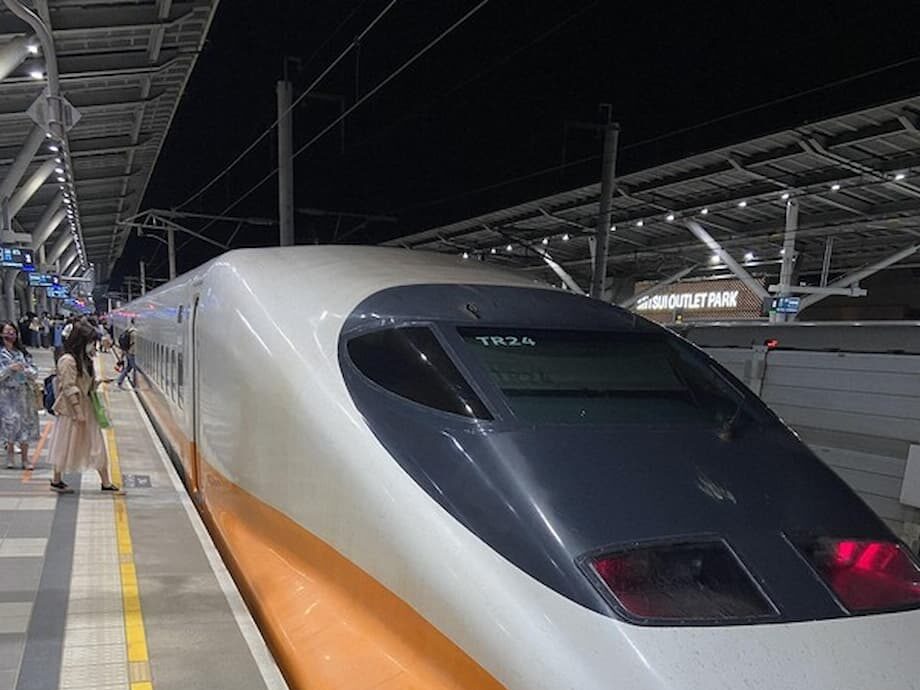Why quiet rules on Taiwan bullet trains are getting a major upgrade
Taiwan High Speed Rail Corp. will adopt strict quiet travel rules on September 22 that require headphones for any audio and confine voice calls to vestibule and gangway areas. The company says train crews will be empowered to deny boarding or ask passengers to leave the train if they refuse to follow instructions after reminders. The aim is simple, to keep carriages calm so people can rest, read, or work without unwanted noise. The policy moves beyond gentle reminders and turns quiet travel into an enforceable part of the passenger transport contract.
- Why quiet rules on Taiwan bullet trains are getting a major upgrade
- What exactly changes on September 22
- How enforcement will work
- How this compares with Japan and other networks
- Why now, and what riders told the company
- Special cases and support for families and travelers with needs
- Practical tips for a quiet ride
- What else is changing on the network
- Key Points
The new rules come with a three month promotion period to help riders adjust. Staff will deliver friendly reminders, place information cards at seats, run LED messages in carriages, and show the guidance on station TV screens. The operator also plans fewer in train announcements so carriages feel less cluttered with sound. These changes set a clear expectation, keep your device on silent, use headphones if you watch or listen, take calls to the vestibule, and speak softly if you must talk in the carriage.
Company leaders have framed the change as a quality of service issue. In public remarks, a Taiwan High Speed Rail executive underlined the basic expectation of quiet, especially when using personal electronics. The executive captured the new norm in plain language:
There is no reason to use electronic devices without earphones.
Early public reaction on Taiwan social media has leaned positive, with many riders welcoming the promise of quieter cabins and firmer action when someone ignores repeated reminders. The approach mirrors the way airlines treat disruptive behavior, moving from courtesy to clear rules that crews can enforce for the comfort and safety of everyone on board.
What exactly changes on September 22
From the start date, quiet travel rules move from suggestion to obligation. That covers the way people watch videos, listen to music, play games, and make phone calls while on board. The provisions sit inside the passenger transport contract, which gives staff the authority to remind riders, direct behavior, and cancel travel for those who refuse to cooperate after repeated requests.
The basic rules
- Keep mobile phones on silent or vibrate inside carriages.
- Use headphones or earphones for any audio from a phone, tablet, or laptop. If you do not have headphones, mute the sound.
- Make and receive voice calls only in vestibules or gangway areas between cars.
- Speak softly in carriages to avoid disturbing nearby passengers.
- Follow crew instructions when asked to adjust volume, move to a vestibule, or stop playing audio out loud.
The term vestibule refers to the small space between passenger cars where doors connect the carriages. Many bullet train systems around the world direct phone calls to this area. It helps keep carriages quiet while still allowing urgent calls, and it reduces the chance that a call will bother people sitting close by.
Announcements and signage
The company will spend three months embedding the rules in daily operations. Staff will give reminders in person, hand out small information cards, and run LED messages in carriages and stations. Station TV screens will carry short explainers. The operator also plans to trim the number of routine announcements on trains so the overall sound level drops. That way the quiet travel policy does not just tell riders to be quiet, it also cuts noise produced by the service itself.
How enforcement will work
Enforcement is structured to favor reminders and guidance first, then firmer measures only if needed. Crews will approach a noisy passenger and ask for headphones or a move to the vestibule. If the person complies, the matter ends there. If the person refuses and continues to disturb others, crews can cancel the travel contract and ask the passenger to step off the train at the next stop. Boarding can also be refused if a rider is already in violation and unwilling to comply before a journey begins.
Step by step
- First reminder from staff, with a request to use headphones, lower volume, or move to the vestibule for calls.
- Second reminder if the behavior continues, possibly with an information card and a direct instruction to comply.
- Final action if the rider refuses again, termination of the travel contract, which can mean being escorted off the train at the next stop or denied boarding.
Shi Zhe, the chairman of Taiwan High Speed Rail, explained why the contract needs teeth. He said rides should give passengers a chance to rest or read without noise, and that crews need clear authority when reminders are ignored. He summarized the final step publicly:
If passengers repeatedly ignore reminders, the most serious penalty will be termination of the transport contract.
The updated contract also clarifies other conduct rules. Passengers who block aisles, sit or lie down in gangways, or refuse to move to assigned seats after being asked may be denied service. The change follows past incidents on crowded services, including a clash last year between a rider sitting on the floor near a door and another traveler trying to board. The operator says the rules respond to customer feedback asking for tighter management of noise and order.
How this compares with Japan and other networks
Japanese bullet train operators have long encouraged riders to step into vestibules for calls and to use headphones for audio. The approach relies largely on etiquette, signage, and peer expectations. Removal of a rider for noise alone is uncommon. Taiwan High Speed Rail is drawing on the same etiquette and going a step further by making enforcement explicit in the passenger contract. It gives crews a clear legal pathway to act when someone refuses repeated reminders.
Quiet travel policies are common on European long distance trains as well. Deutsche Bahn, Eurostar, and other operators designate quiet zones where calls are not allowed and headphones are expected. Amtrak popularized a quiet car on the US East Coast, which bans calls and audible audio entirely. Taiwan’s approach is similar in spirit, though it applies across the whole train rather than only in a dedicated quiet carriage.
The shared goal is a consistent, predictable experience. Clear rules reduce friction among riders. Crews can point to a policy instead of brokering disputes. Most people already use headphones. The policy sets a baseline for the small number who do not.
Why now, and what riders told the company
The timing reflects steady rider feedback. Crews say many passengers already follow quiet guidance, yet repeated announcements still fail to reach a minority who stream videos out loud or talk loudly on phones. During busy periods, a few noisy riders can overwhelm the calm that most people prefer. That is when other passengers ask crews to act, and when staff feel limited if they have no authority beyond another announcement.
September and October include extended holidays in Taiwan, when services run at full load for days in a row. The three month promotion period covers this stretch. The operator has upgraded its ticketing system to handle surges in bookings and expects more families, students, and tourists on board. This is a logical window to reset expectations and build new habits, with high visibility and frequent contact between riders and staff.
Special cases and support for families and travelers with needs
The quiet travel policy comes with common sense allowances. Staff will continue to help families with infants and toddlers, as well as travelers with medical or neurological conditions that affect self regulation. Crews can assist with seating, suggest vestibule breaks if a child needs to move around, and help parents with tips for a calmer ride. The company has asked other passengers for patience when a situation involves a child or a traveler with special needs.
Small children sometimes respond to simple distractions. Staff have mentioned stickers or cookies as the kind of light touch that can calm a youngster. That spirit of helping, rather than policing, is the starting point. The rules focus on persistent noisy behavior from people who are able to comply and simply choose not to do so after reminders.
Passengers who rely on assistive devices should have no issue under the new rules. Hearing aids are unaffected. People who need to make support calls can step into the vestibule. If crowds make vestibules busy, crews may ask callers to send a text message instead until space opens, keeping carriages quiet while still enabling communication.
Practical tips for a quiet ride
Riders can prepare with a few small habits. These steps will keep you within the rules and make your journey more pleasant.
- Pack wired or wireless headphones, and check they work before boarding.
- Switch your phone to silent before you find your seat. Use vibrate for alerts.
- Download videos or playlists and keep volume at a level only you can hear.
- If you must place a call, wait for a vestibule, close the door behind you, and keep the call short.
- Send a text message instead of calling if carriages or vestibules are crowded.
- Use noise canceling headphones if you are sensitive to ambient sound, and pick seats away from doors if possible.
- Respect crew instructions quickly. A fast response keeps the journey smooth for everyone.
Tourists and occasional riders can look for quiet travel cards in seat pockets and watch for LED prompts in English and Chinese. Staff are trained to explain the rules and help you find a vestibule if you are unsure where to go. If you forget headphones, mute your device and rely on captions until you can buy a pair at a station shop.
What else is changing on the network
The quiet travel policy is part of a broader refresh of passenger conduct rules. The transport contract now states that disruptive behavior, such as blocking aisles, sitting on station floors, or refusing an assigned seat, may prompt cancellation of the travel contract after warnings. The operator says this gives crews a clear framework to keep traffic flowing, especially at busy times.
Starting next year, riders with nonreserved tickets will be limited to certain trains during peak hours. The operator says this is aimed at crowd control and safety when platforms and carriages are full. It should spread demand more evenly across the schedule and reduce conflict in aisles and doorways.
The line itself runs about 350 kilometers from Taipei in the north to Kaohsiung in the south. It opened in 2007 using technology from Japan and other partners and has become a backbone for long distance travel in Taiwan. With quiet travel in place, the operator is betting that a calmer cabin, fewer announcements, and firm but fair enforcement will make the service feel more like a restful moving lounge than a noisy commute.
Key Points
- Headphones or silent mode are mandatory for any audio on Taiwan High Speed Rail starting September 22.
- Phone calls must be made in vestibules or gangway areas, not in seating rows.
- Crews can deny boarding or ask riders to leave the train if they ignore repeated reminders.
- A three month promotion period will use staff reminders, seat cards, LED messages, and station TV screens.
- Other conduct rules now cover aisle blocking and refusing assigned seats, with possible cancellation of travel for noncompliance.
- Families with infants and travelers with conditions affecting self control will receive assistance, and fellow passengers are asked for understanding.
- The operator plans fewer in train announcements so carriages stay quieter.
- Next year, nonreserved ticket holders will be limited to certain trains in peak hours for safety and crowd control.












